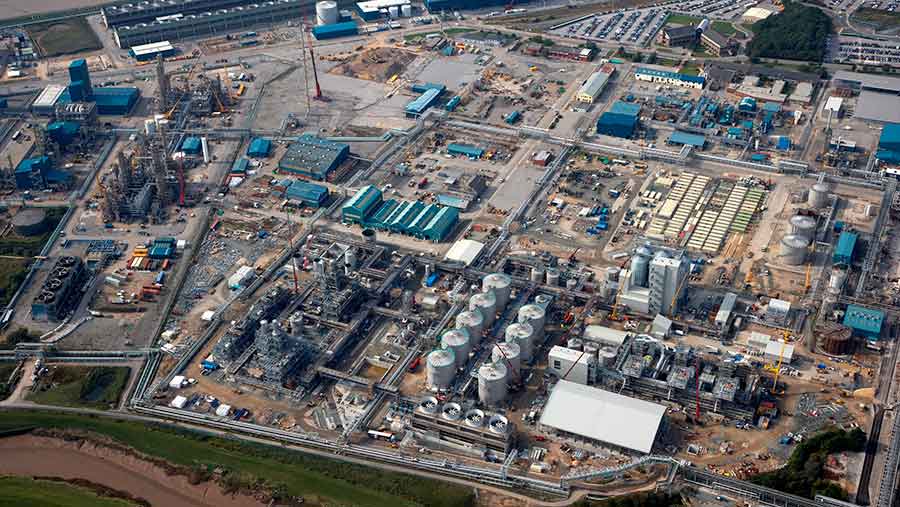Concern for wheat growers as biofuel plant closes

A £350m biofuel plant that processes 1.1m tonnes of feed wheat from 900 farms across East Yorkshire has closed for the foreseeable future.
Bosses at the Vivergo Fuels plant at Saltend, near Hull, said they were forced to take the production facility offline due to a drop in bioethanol prices this autumn.
As well as processing wheat into fuel, the facility is also the country’s largest single production site for animal feed, delivering 500,000t of high-protein feed to more than 800 UK farms.
See also: BP sells Vivergo Fuels stake to AB Foods
Part of British Sugar parent company AB Foods, the plant can produce up to 420m litres of bioethanol annually and is seen as a key customer for local wheat growers.
It employs more than 150 skilled people at the production site in Hull and head office in Hessle – as well as supporting more than 3,000 jobs – including on farms.
Road fuel
In a company statement, Vivergo suggested it had suffered because of government “inaction” to increase the amount of bioethanol in UK road fuel.
Standard unleaded fuel contains up to 5% ethanol and can be used in any petrol-engined car without problems or the need for modification.
But the government has faced calls to introduce E10 biofuel, which is made up of 90% regular unleaded petrol and 10% ethanol.
Vivergo said it “remained extremely concerned that there is no roll-out framework for E10 in the UK, the absence of which could have serious consequences for the long-term future of the UK bioethanol industry.”
Profit margins
It added: “Over the past six weeks we have seen bioethanol prices fall significantly, affecting Vivergo profit margins further.
“While there have been some supply increases this year, the bioethanol market in the UK remains constrained by the government’s inaction.
“As a result of these market conditions and legislative uncertainty, we have taken the decision to take our production facility offline for the foreseeable future.
“While the plant is offline, we are taking the opportunity to bring forward and extend our annual plant maintenance work in order to maintain employment levels.
Monitor market
“We will closely monitor the market ahead of any plant restarting.”
Vivergo claims E10 is the simplest, most readily available environmentally friendly option for consumers to help reduce the effect of road transport on our environment.
It says E10 represents the fastest, most cost-effective and straightforward channel for the UK to de-carbonise transport, improve air quality and meet reduced emissions targets.
Vivergo says all cars since March 2016 are fully optimised for E10 and the fuel is proving increasingly popular in other European countries – including Finland, France and Germany.
But motoring organisations, including the RAC, have voiced concern over E10 – warning that it is not suitable for all cars, especially older vehicles.
Problems
As a rule, drivers of cars registered before 2002 are advised not to use E10 in their vehicle, as problems have been reported, says the RAC.
RAC technical director David Bizley said possible damage could be “caused by bioethanol’s corrosive properties, which can lead to damaged seals, plastics and metals”.
“There have also been reports that E10 is a less stable fuel and that this can make it more difficult to start a vehicle that has not been driven for an extended period.”
The Department for Transport said in September it would increase the proportion of renewable fuel in petrol and diesel from 4.75% to 9.75% by 2020.
It followed a government consultation on amendments to the Renewable Transport Fuel Obligation, which decides the amount of road fuel from sustainable renewable sources.
